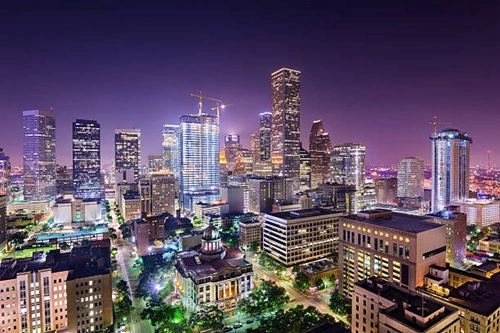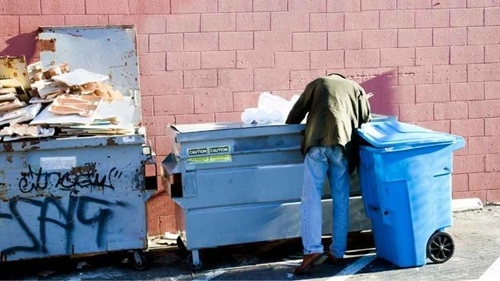If you live in Texas and are considering lighting a fire on your property after dark — whether for burning yard waste, a bonfire, or some other purpose — you should be aware: burning at night is generally not permitted under Texas’s outdoor burning rules, unless very narrow exceptions apply. The state regulatory scheme, enforced by the Texas Commission on Environmental Quality (TCEQ) and implemented through local fire and environmental authorities, imposes time-of-day restrictions and other conditions on outdoor burning.
Below, we explore the relevant law, typical local enforcement, exceptions, risks, and consequences.

Legal Foundation: Texas Outdoor Burning Rules
Texas law, via the Texas Health & Safety Code § 382.018 and the TCEQ Outdoor Burning Rule (30 Texas Administrative Code Chapter 111, Subchapter B, § 111.201 et seq.), regulates when and how outdoor burning may legally occur.
Among the key provisions:
- Burning must occur during daylight hours: under the general rule, a fire may be started no earlier than one hour after sunrise and must be completed (active burning ended) by one hour before sunset on the same day.
- No expansion after sunset: the burn area cannot be increased after that designated period, and residual smoldering that causes smoke nuisances must be extinguished.
- Nighttime burning is effectively prohibited under the default regulatory regime because “active burning” must end before sunset.
- Local jurisdictions may impose stricter rules, particularly within city limits or under fire or burn bans.
Thus, outside of special exceptions, starting or maintaining a fire at night (after sunset) in Texas typically violates state outdoor burning rules.
Local Enforcement & Examples
Counties and municipalities in Texas often mirror or augment the state’s rules:
- Tarrant County: Its fire marshal’s guidelines explicitly state “NO BURNING AT NIGHT.” Burns must begin after sunrise and conclude before sunset. Violating county burn orders is a Class C misdemeanor (fine up to $500).
- Dallas County: The local requirements mirror the state rules: burning must occur between sunrise and one hour before sunset, and all burns must end the same day.
- Parker County: Burning is only lawful between one hour after sunrise and one hour before sunset.
- Comal County: Its fire marshal enforcement allows large fines and possible jail time for violations of TCEQ’s rules, and burning outside permitted hours would be considered a violation.
- Gainesville, TX: The city’s permit policy requires that burning must be completed by one hour before sunset (though ceremonial or campfires may have slightly different allowances).
These local rules show that nighttime burning is typically disallowed under standard local policy aligned with state law.
Exceptions & Special Circumstances
While the default is “no night burning,” certain narrow exceptions or controlled burns may sometimes override this:
- Recreational, ceremonial, or cooking fires: TCEQ rules permit burning for recreation, cooking, ceremony, or warmth under some conditions. However, local ordinances or rules might still restrict hours.
- Firefighter training, prescribed burns, or emergency operations: Under special permits or authorizations, such burns may occur under controlled conditions outside ordinary hours.
- Local ordinance carve-outs: Some cities or counties may permit limited night burning for very small recreational fires (fire pits), subject to fire code and local ordinance. That said, many local rules explicitly ban open burning of yard waste or refuse at any time.
However, one should never assume exception — local fire codes and municipal laws may be stricter than the state.
Risks & Consequences of Nighttime Burning
If you burn at night unlawfully, you may face:
- Civil fines or municipal citations
- Misdemeanor criminal charges (for violating burn orders or local fire ordinances)
- Liability for nuisance claims or damage (if smoke drifts onto neighbors, blocks roads, or causes health issues)
- Forced extinguishment and cleanup costs
- Violation of air quality or environmental rules (if smoke or emissions exceed standards)
Because night burns produce more smoke that lingers (due to cooler, stable air), they pose higher risks of creating a public nuisance, air pollution, or visibility hazards for traffic — making them more likely to draw enforcement.
FAQs: Burning at Night in Texas
Q1: Is it always illegal to burn at night in Texas?
Generally yes. Under standard TCEQ rules, outdoor burning must occur between one hour after sunrise and one hour before sunset, so nighttime burning is not allowed under normal circumstances. Exceptions may exist but are rare.
Q2: What if I have a small fire pit or campfire in my backyard?
A small, controlled fire in a fire pit (for recreational purposes) might sometimes be tolerated under local ordinances — but you need to check your city’s fire marshal regulations. Many municipalities ban open burning of yard debris or refuse even during daytime.
Q3: Can I burn trash or yard waste at night if no one complains?
No. Compliance is dictated by the law and rules, not by whether someone complains. A fire started at night generally violates the rules even if no one sees it.
Q4: Are there emergency or special burns that can occur at night?
Yes. Fire departments, prescribed burn operations, or emergency operations (e.g., in wildfire response) may be authorized to burn outside normal hours under strict controls.
Q5: How do I know what rules apply where I live?
Check:
- TCEQ’s Outdoor Burning Rule and state statutes
- Your county’s fire marshal or environmental agency
- City or municipal fire code / burning ordinances
- Whether a local burn ban is in effect (especially during drought)
Q6: What should I do if I see someone burning at night?
Contact your city or county fire department, or your region’s TCEQ office. Nighttime burns are generally unlawful and pose public safety and health risks.
Bottom Line
In Texas, burning at night is not permitted under standard outdoor burning regulations: active burning must begin after sunrise and end before sunset. Unless you are operating under a carefully regulated special exception (such as a permitted prescribed burn or emergency operation), lighting a fire after dark is likely unlawful. Always check local fire and environmental rules before burning anything on your property.

